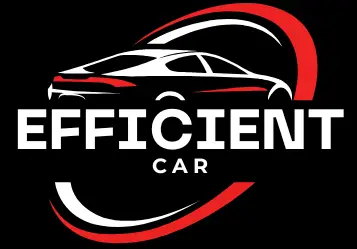How to choose the right fuel-efficient car

Understanding the Importance of Fuel Efficiency
Fuel efficiency has become an increasingly important factor in the decision-making process for car buyers. With rising fuel costs and growing concerns over environmental impact, it is crucial to understand the significance of opting for a fuel-efficient vehicle. Not only does increased fuel efficiency save you money in the long run, but it also reduces harmful emissions and contributes to a cleaner, healthier environment.
Choosing a fuel-efficient car not only benefits your personal finances and the planet, but it also promotes a more sustainable future. By selecting a vehicle with better fuel economy, you can significantly lower your carbon footprint and decrease your overall dependency on non-renewable energy sources. Moreover, government incentives and tax breaks are often available for individuals who choose fuel-efficient cars, making the switch even more appealing. Ultimately, understanding the importance of fuel efficiency is not just about making a wise financial choice; it is a step towards creating a greener and more energy-conscious society.
Evaluating Your Driving Needs and Habits
When evaluating your driving needs and habits, it is important to take into consideration the type of driving you typically do on a daily basis. Are you primarily driving long distances on highways, or do you spend more time navigating through city traffic? Understanding your driving patterns will help you determine the most suitable fuel-efficient car for your needs.
Additionally, it is essential to evaluate your driving habits to maximize fuel efficiency. Do you tend to accelerate rapidly and brake abruptly? If so, you may want to consider a car with advanced fuel-saving features such as regenerative braking. On the other hand, if you have a more relaxed driving style, you may have greater flexibility in choosing a fuel-efficient car that meets your specific requirements. By evaluating your driving needs and habits, you can make an informed decision when selecting a fuel-efficient car that will not only help you save money on fuel costs but also minimize your environmental impact.
Researching Different Types of Fuel-Efficient Cars
Researching Different Types of Fuel-Efficient Cars can be a daunting task, especially with the overwhelming number of options available in today's market. However, taking the time to research and compare different types of fuel-efficient cars is crucial in order to make an informed decision. By conducting thorough research, you can identify the features and specifications that are important to you and determine which car aligns with your needs and preferences.
One of the first steps in researching fuel-efficient cars is to consider the different types available. From compact sedans to hybrid vehicles, there are a variety of options to choose from. It is important to understand the benefits and drawbacks of each type, as well as how they align with your specific driving needs. For example, if you primarily drive in the city with frequent stop-and-go traffic, a hybrid or electric vehicle may be a more suitable option due to their regenerative braking systems and improved fuel economy in urban environments. On the other hand, if you frequently travel long distances on highways, a diesel-powered car with its higher torque and better highway fuel economy may be a better fit.
Comparing Fuel Efficiency Ratings and MPG
When it comes to comparing fuel efficiency ratings and MPG (miles per gallon), there are a few key factors to consider. First and foremost, it's important to understand that fuel efficiency ratings can vary depending on the type of vehicle and its specific features. For example, smaller, compact cars tend to have higher MPG ratings compared to larger, more powerful SUVs or trucks. Additionally, factors such as driving conditions, traffic congestion, and individual driving habits can also affect actual MPG performance. It's crucial to keep these variables in mind when assessing the fuel efficiency of different vehicles.
To effectively compare fuel efficiency ratings and MPG, it's helpful to consult reliable sources for accurate and up-to-date information. The Environmental Protection Agency (EPA) and the Department of Energy provide comprehensive fuel economy data for various makes and models of vehicles. These resources offer detailed information on fuel efficiency ratings, estimated annual fuel costs, and even greenhouse gas emissions. By utilizing the information provided by these reputable sources, you can make informed decisions and narrow down your choices when considering fuel-efficient cars.
Considering Hybrid and Electric Vehicles
Hybrid and electric vehicles have gained significant traction in recent years as viable alternatives to traditional petrol-powered cars. Their growing popularity can be attributed to their exceptional fuel efficiency and reduced emissions. Unlike conventional vehicles that solely rely on internal combustion engines, hybrid cars combine a petrol engine with an electric motor to maximize fuel efficiency. This combination allows the vehicle to switch between the two power sources, resulting in lower fuel consumption and reduced carbon emissions. On the other hand, fully electric vehicles run solely on electricity, with no need for petrol or diesel. By eliminating the need for fossil fuels altogether, electric vehicles offer zero-emission transportation, making them an attractive choice for environmentally conscious individuals.
One of the key advantages of hybrid and electric vehicles is their potential long-term cost savings. Although the initial purchase price of these vehicles can be higher than traditional cars, their lower fuel consumption and maintenance costs can offset this initial investment. With hybrid vehicles, the electric motor assists the petrol engine, resulting in improved mileage and reduced fuel expenses. Electric vehicles, on the other hand, can be charged at home or at public charging stations, often at a fraction of the cost of petrol or diesel. Moreover, hybrid and electric vehicles tend to have fewer moving parts than conventional cars, which can lead to reduced maintenance costs over time. Therefore, considering the potential long-term savings, investing in a hybrid or electric vehicle can be a wise choice for both economic and environmental reasons.
Assessing the Cost of Fuel-Efficient Cars
When considering the cost of fuel-efficient cars, it is important to look beyond the initial purchase price. While fuel-efficient vehicles may have a higher price tag upfront, they can save you money in the long run. One key factor to consider is the potential savings on fuel expenses. Fuel-efficient cars typically consume less fuel per mile, resulting in lower fuel costs over time. This can translate into significant savings, especially if you have a long commute or frequently take road trips. Additionally, some fuel-efficient cars may also be eligible for tax credits or incentives, further reducing the overall cost of ownership.
Another aspect to assess when considering the cost of fuel-efficient cars is the potential for lower maintenance and repair expenses. These vehicles often feature advanced technologies and components that are designed to maximize fuel efficiency and reduce wear and tear. As a result, they may require fewer visits to the mechanic and maintenance costs may be lower compared to traditional gas-powered vehicles. Additionally, some manufacturers may offer longer warranties or specialized maintenance programs for their fuel-efficient models, which can provide added peace of mind and potential cost savings. It is important to take these factors into account when evaluating the overall cost of owning a fuel-efficient car.
